
Syreeta Wright, who recorded professionally under the mononym Syreeta, was an American singer-songwriter, best known for her music during the early 1970s through the early 1980s. Wright's career heights were songs in collaboration with her ex-husband Stevie Wonder and musical artist Billy Preston.

The Andantes were an American female session group for the Motown record label during the 1960s. Composed of Jackie Hicks, Marlene Barrow, and Louvain Demps, the group sang background vocals on numerous Motown recordings, including songs by Martha Reeves & the Vandellas, the Temptations, Stevie Wonder, the Four Tops, Jimmy Ruffin, Edwin Starr, the Supremes, the Marvelettes, Marvin Gaye and the Isley Brothers, among others. It is estimated they appeared on 20,000 recordings.

Lynda Laurence is an American singer. The youngest daughter of Louise and Ira Tucker, a gospel songwriter, producer, and singer, Laurence's siblings are Sundray Tucker and Ira Tucker Jr.

Music of My Mind is the fourteenth studio album by American singer, songwriter, and musician Stevie Wonder. It was released on March 3, 1972, by Tamla Records, and was Wonder's first to be recorded under a new contract with Motown that allowed him full artistic control over his music. For the album, Wonder recruited electronic music pioneers Malcolm Cecil and Robert Margouleff as associate producers, employing their custom TONTO synthesizer on several tracks. The album hit No. # 21 in the Billboard LP charts, and critics found it representative of Wonder's artistic growth, and it is generally considered by modern critics to be the first album of Wonder's “classic period”.

The Supremes is a 2000 box set compilation of the material by Motown's most popular act of the 1960s, The Supremes. The set covers The Supremes' entire recording history, from its first recordings as The Primettes in 1960 to its final recordings in 1976.
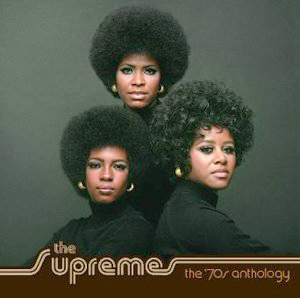
The '70s Anthology is a 2002 two compact disc set of many of the songs recorded by the 1970s groupings of The Supremes. The set features 42 tracks, of which 10 had never been released, and 6 were appearing in extended or unedited forms.
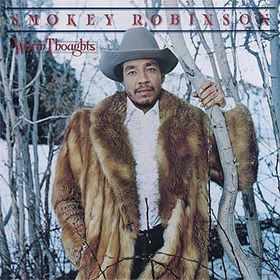
Warm Thoughts is an album by the American musician Smokey Robinson, released in 1980. It features the top 40 hit, "Let Me Be the Clock". The album was arranged by Reginald "Sonny" Burke. This album also featured the semi-autobiographical tune "Wine, Women and Song", which proved to be the closest thing to a Miracles reunion that occurred in the 1980s, with Smokey doing a duet with his then-wife, former Miracle Claudette Robinson, and Miracle Marv Tarplin, with whom he shared songwriting credits, on guitar. The song "Travelin' Thru'" was written by Smokey's real-life sister, Rose Ella Jones, and two songs written by Robinson with fellow Motown artist, Stevie Wonder, and singer, songwriter, and former Starsky and Hutch star, David Soul. This album was a success, reaching the Top 20 of The Billboard 200 Pop Album chart, peaking at No. 14, and the Top 10 of Billboard's R&B Album Chart, peaking at No. 4.

It's My Pleasure is the tenth studio album by Billy Preston, released in June 1975 on A&M Records. The album shows the modernisation of Preston's music, placing a heavier emphasis on synthesizers. It was also his first collaboration with the singer Syreeta Wright who sings on one track. The album is notable for featuring harmonica by Stevie Wonder on two tracks. George Harrison also appears, playing guitar on "That's Life".
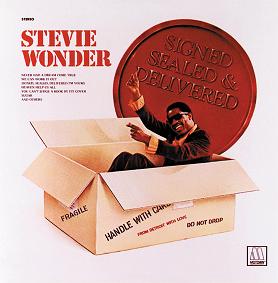
Signed, Sealed & Delivered is the 12th studio album by American recording artist Stevie Wonder, released on August 7, 1970, by Tamla Records. The album featured four hits that hit the Billboard Hot 100: "Signed, Sealed, Delivered I'm Yours" (#3), "Heaven Help Us All" (#9), "Never Had a Dream Come True" (#26) and Wonder's cover of The Beatles' "We Can Work It Out" (#13). The album hit #25 on the Billboard Pop Albums chart as well as #7 on the R&B Albums chart.

Away We a Go-Go is a 1966 album by Smokey Robinson & the Miracles. The album features the singles "(Come 'Round Here) I'm the One You Need", a Billboard top 20 Pop hit, written and produced by Holland-Dozier-Holland; and "Whole Lot of Shakin' in My Heart ", written and produced by Frank Wilson. The album uses a different take of "I'm the One You Need" than what was issued on the single. A third single was planned for release from this album, the tune "More, More, More ", cataloged as Tamla T-54005, but the single was never released. It was later covered by the regional group Bob Brady and The Con Chords. Another single from this album, the Stevie Wonder/Ivy Jo Hunter composition of "Can You Love a Poor Boy", was released to radio stations as a special Disc Jockey Advanced Single, Tamla T-540, but was never given an official catalog number for general release. It too, inspired cover versions by Gil Bernal and Ronnie Walker.

Make It Happen is a 1967 album by Smokey Robinson & the Miracles. It featured ballads such as the hit singles "The Love I Saw in You Was Just a Mirage" and "More Love", as well as the up-tempo "The Tears of a Clown" co-written by Stevie Wonder and his producer Hank Cosby.
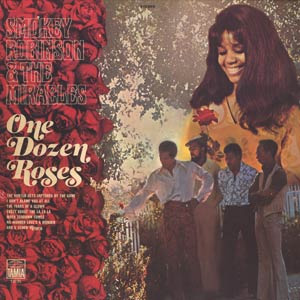
One Dozen Roses is a 1971 album by Smokey Robinson & The Miracles, issued on Motown Records' Tamla label. The penultimate album before lead singer Smokey Robinson departed the group for a solo career, One Dozen Roses features the Top 20 Billboard Hot 100 hit single "I Don't Blame You at All". Also included is the group's number-one smash hit "The Tears of a Clown", which was also made available through the reissue of the 1967 Miracles LP Make It Happen as The Tears of a Clown. Both of these songs were also huge hits in the UK, reaching #11 and #1 respectively.
"What Love Has Joined Together" is a song written and composed by Miracles members Smokey Robinson and Bobby Rogers, and was recorded by six Motown acts: Mary Wells, The Temptations, Smokey Robinson & The Miracles, Barbara McNair, Syreeta, and Queen Latifah and was issued as B-sides to hits by Wells and The Temptations; "Your Old Standby" for Wells, released in 1963, and "It's Growing" by The Temptations, released in 1965.
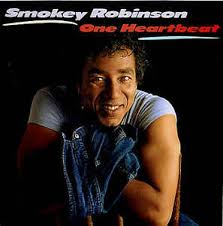
One Heartbeat is an album by American R&B singer/songwriter Smokey Robinson, released in 1987. It hit number 26 on the US Billboard Album Chart and number 1 on the US Billboard R&B album chart. The album contains Robinson's last two US Billboard top 10 singles: "Just to See Her" and "One Heartbeat". "What's Too Much" was released as the album's third and final single. The album was certified Gold by the RIAA.

Flying High Together is an album by Smokey Robinson and the Miracles on Motown Records' Tamla label, released in 1972. It is noted as The Miracles' last studio album with original lead singer Smokey Robinson, who retired from the act to concentrate on his duties as vice president of Motown. The album charted at #46 on the Billboard Pop Album chart, and featured two singles: the appropriately named "We've Come Too Far to End It Now", which matched the parent album's chart position on the Billboard singles chart, charting at #46, and reached the Top 10 of the Billboard R&B singles chart, charting at #9, and "I Can't Stand to See You Cry", which charted at #45 Pop, and #21 R&B.

Stevie Wonder Presents: Syreeta is the second studio album by American singer and songwriter Syreeta Wright, released by Motown on June 19, 1974.

One to One is the third studio album released by American R&B singer and songwriter Syreeta Wright in February 1977 by Motown. It serves as her first album Wright released where former husband Stevie Wonder did not oversee most of its production, instead only being involved with the song "Harmour Love", which was released as a single.

Syreeta is the fourth solo album by Motown recording artist and American singer-songwriter Syreeta Wright, released by the Tamla label on April 26, 1980. It's also the second album to be titled Syreeta after her 1972 debut album.

What Love Has...Joined Together is a 1970 album by R&B group Smokey Robinson & The Miracles on Motown Records' Tamla label. A concept album consisting solely of six short love songs, it charted at number 97 on the Billboard Top 200 Album chart, and reached the Top 10 of Billboard's R&B album chart, peaking at number 9. It was the first Miracles album to have no new songs; the recordings are all cover versions of songs written by noted composers, such as Stevie Wonder, Berry Gordy, Frank Wilson, Brenda Holloway and her sister Patrice Holloway, Burt Bacharach and Hal David, Marvin Gaye, The Beatles' John Lennon & Paul McCartney,, and Miracles members Smokey Robinson and Bobby Rogers.
Motown Chartbusters is a series of compilation albums first released by EMI under licence on the Tamla Motown label in Britain. In total, 12 editions were released in the UK between 1967 and 1982. Volumes 1 and 2 were originally called British Motown Chartbusters; after this the title Motown Chartbusters was used.

















